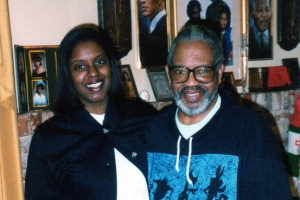WSJ Op-Ed: What My Father’s Death Taught Me About Long-Term Care
March 18, 2015 / by Karen Lincoln- Research
- Opinion
It’s not the load that breaks you down, it’s the way you carry it. This saying suggests that good decision making and careful planning can help you deal with some of life’s challenges.
I’d like to think that I make good decisions and engage in careful planning. I consider my options, gather evidence, weigh the pros and cons, and make a decision followed by a plan. However, I didn’t take this approach when planning for retirement until a few years ago.
My father was a hardworking man, employed in as many as three jobs at once to support his family. He survived childhood physical abuse, a segregated Army, and challenges associated with being an African-American man from Texas with a high-school diploma. By all accounts he was fairly successful for most of his life. He owned a home, was gainfully employed, provided for his family, and had an active social life.
And then he got sick. My father had diabetes that resulted in an amputated leg and vision impairment, congestive heart failure, stroke, end-stage renal disease requiring dialysis once a day, and depression. He suffered physical and financial abuse from his caregiver and neglect in a low-quality nursing home, where he eventually died after a short stay. Despite his condition, we were told that he could have been cared for at home.
My father’s life taught me to work hard and to be self-sufficient. My father’s death taught me to have a long-term-care plan.
Read more in The Wall Street Journal.
To reference the work of our faculty online, we ask that you directly quote their work where possible and attribute it to "FACULTY NAME, a professor in the USC Suzanne Dworak-Peck School of Social Work” (LINK: https://dworakpeck.usc.edu)
